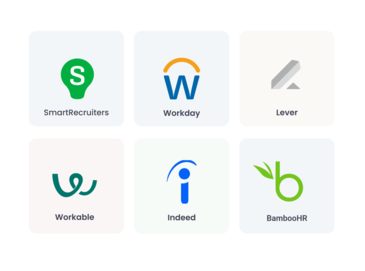Transform your logistics and supply chain hiring
As the logistics and supply chain sector continues to grow and evolve, finding the right talent becomes increasingly challenging. That’s where Testlify comes in.
Our innovative platform empowers companies like yours to streamline and enhance their hiring processes, ensuring you identify and hire the best candidates for your logistics and supply chain teams.


Assess candidates with precision
Our comprehensive suite of assessments is specifically designed to evaluate the skills, knowledge, and abilities essential for success in the logistics and supply chain industry. With Testlify, you can accurately assess candidates’ capabilities across various key areas, including:
Objective data for informed decisions
Make data-driven hiring decisions with confidence. Testlify provides you with objective, quantifiable data on candidates’ performance in each assessment.
Our comprehensive reports offer valuable insights into candidates’ strengths and areas for improvement, helping you identify the right fit for your logistics and supply chain roles. By relying on concrete data, you can minimize biases and enhance the accuracy of your selection process.


Customizable assessments
We understand that every logistics and supply chain organization has unique requirements. That’s why Testlify offers a flexible assessment platform that allows you to tailor assessments to align with your specific job roles and responsibilities.
Customize assessments based on the skills, competencies, and experience crucial for your logistics and supply chain positions, ensuring you evaluate candidates accurately and efficiently.
Supply chain management knowledge assessment
The logistics and supply chain industry requires candidates with a solid understanding of supply chain management principles, including inventory management, demand forecasting, procurement, transportation, warehousing, and distribution.
Testlify can help assess candidates’ knowledge in these areas by offering customized assessments that cover various aspects of supply chain management. These assessments can include questions on key concepts, industry best practices, and real-world scenarios to evaluate candidates’ proficiency in optimizing supply chain operations.


Risk management and resilience assessment
The logistics and supply chain industry is subject to various risks, such as disruptions in transportation, supplier issues, natural disasters, or geopolitical uncertainties. Testlify can help evaluate candidates’ risk management and resilience by offering assessments that simulate risk scenarios.
These assessments can measure candidates’ ability to assess risks, develop contingency plans, and respond to unforeseen events while minimizing supply chain disruptions. Assessing candidates’ risk management skills can help identify individuals who can mitigate risks effectively and ensure the continuity of supply chain operations.
Streamline your hiring process
Gone are the days of manual screening and tedious interviews. Testlify simplifies and streamlines your logistics and supply chain hiring process. With our automated assessment platform, you can efficiently filter out unqualified candidates, saving time and resources.
Our intuitive candidate management system enables you to track and analyze candidate performance, making it easier than ever to identify top talent for your logistics and supply chain teams.

Change the way you hire with Testlify
Don’t let talent gaps hinder your logistics and supply chain operations. Embrace the power of Testlify and unlock access to a pool of highly skilled candidates who can drive your organization’s success. Streamline your hiring, evaluate candidates with precision, and make data-driven decisions. Get started with Testlify today and revolutionize your logistics and supply chain hiring process.
Frequently asked questions (FAQs)
Want to know more about Testlify? Here are answers to the most commonly asked questions about our company.



